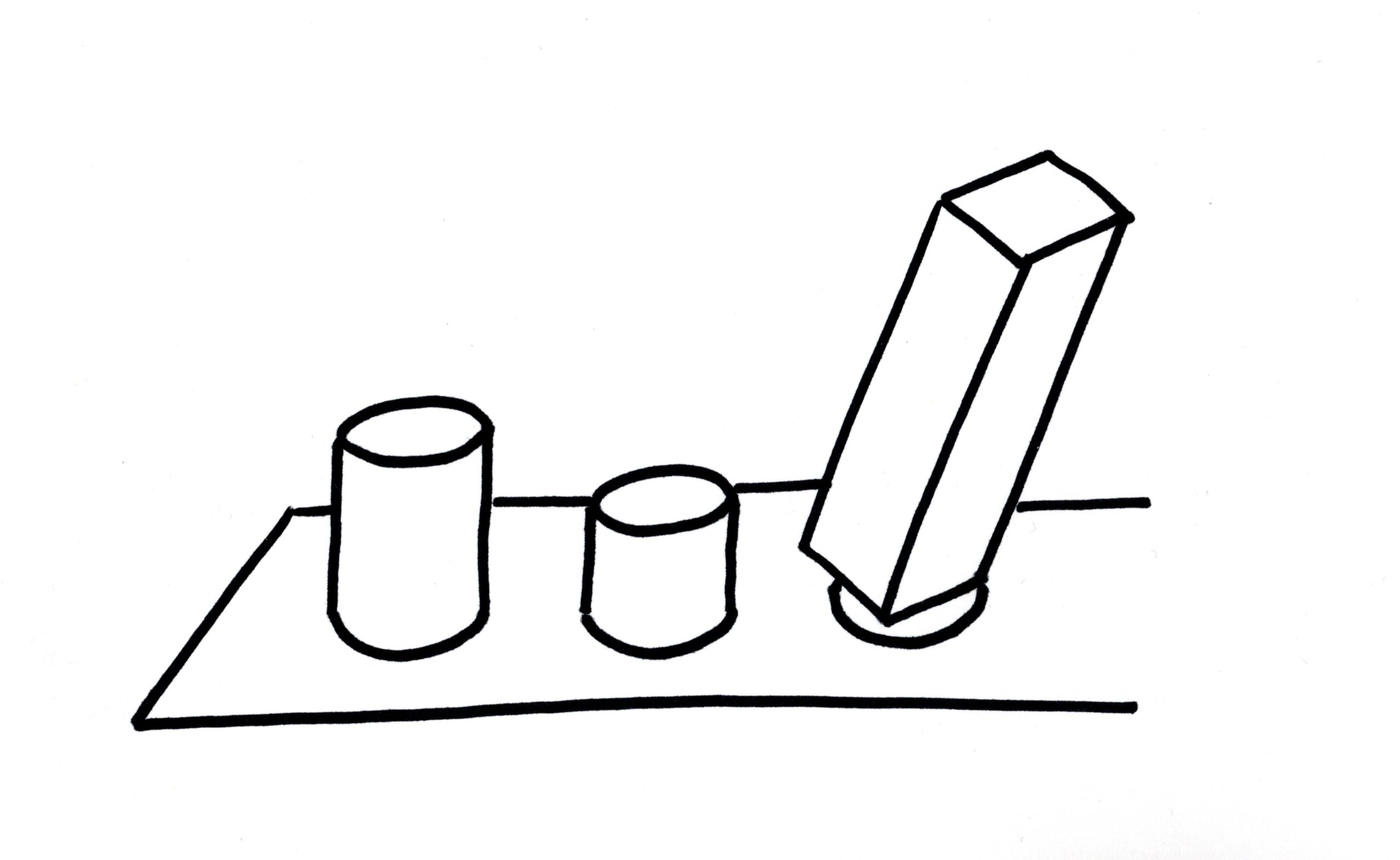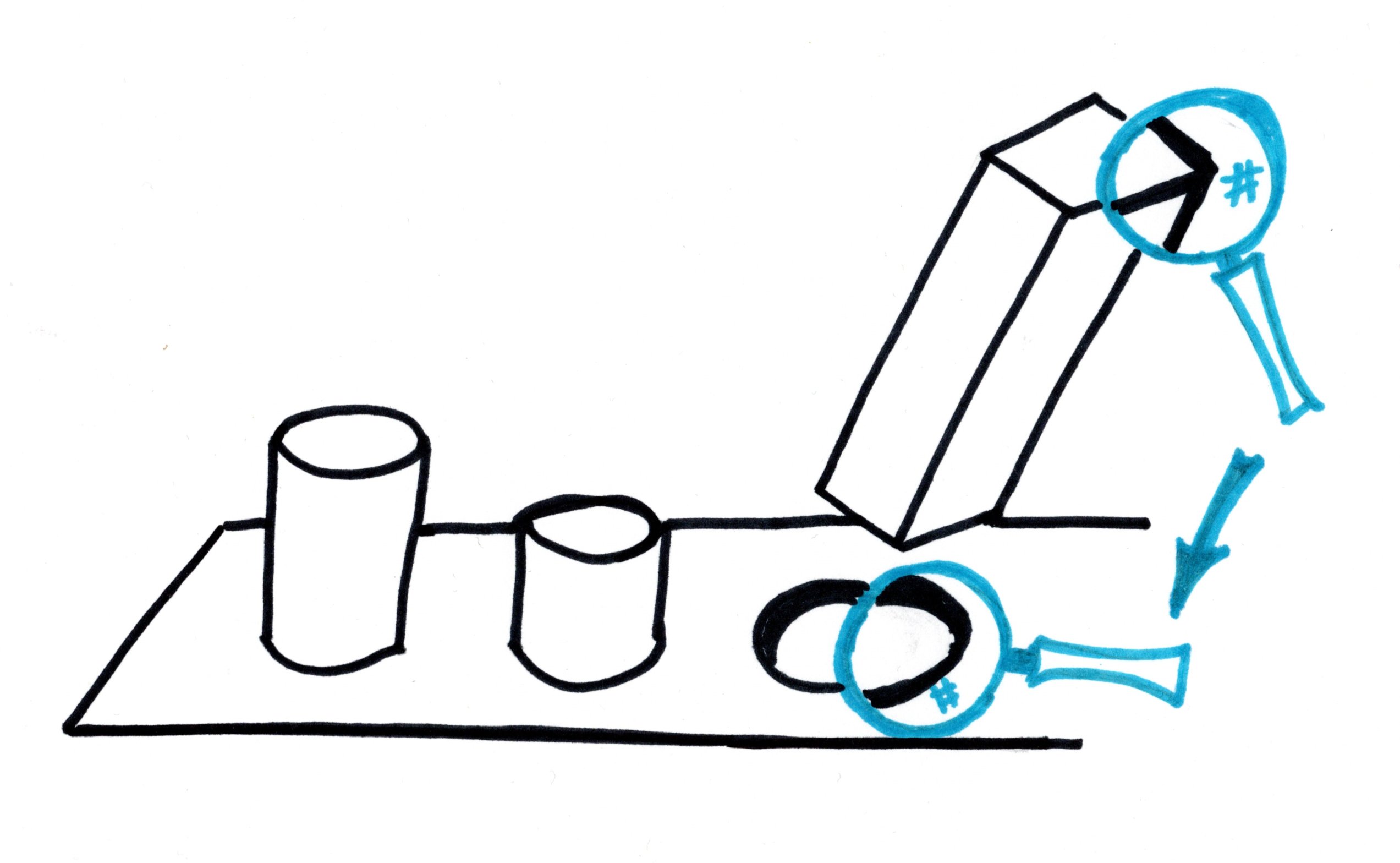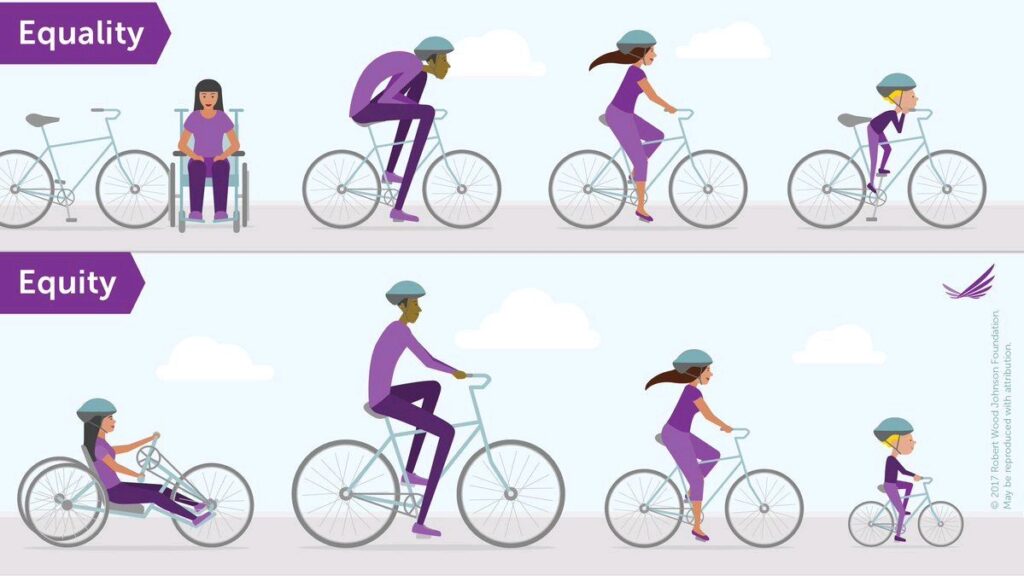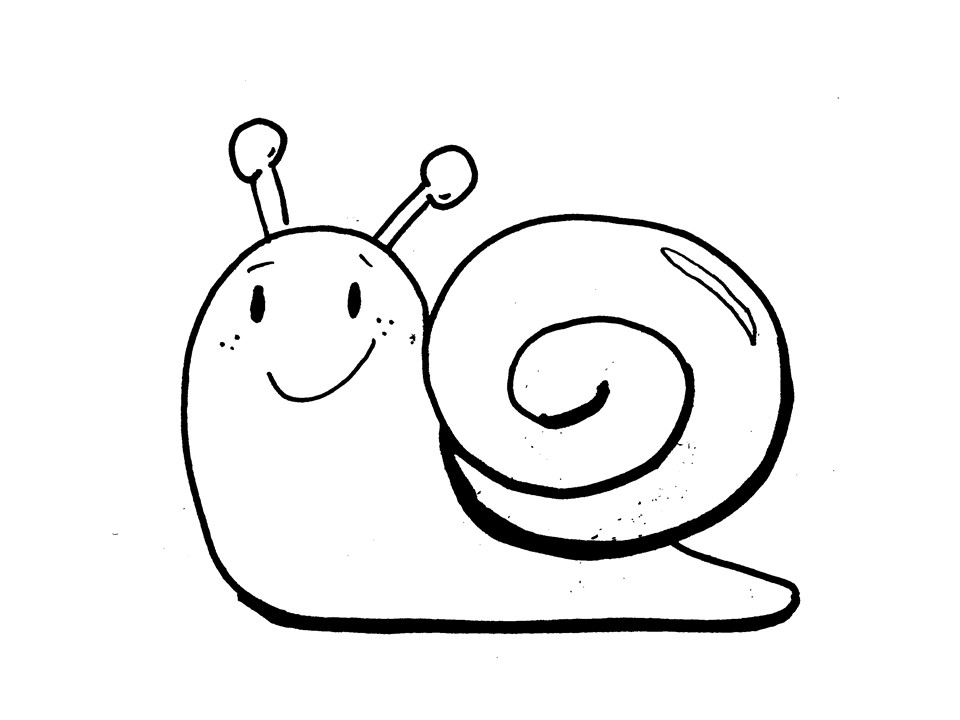Terms & tools

1. Broaden the norm
Equity is not about assimilation. It is not about molding people into the dominant ideas of ‘excellence’ or ‘quality’, to make them succeed (when they behave conform the narrow norms).
Rather, equity is about broadening our views on what excellence and quality is. In this way, we can recognize and build on the potential of people with varying communication styles, bodies, preferences and perspectives.
It is about making space, and facilitating more people to grow, participate, contribute and excel.
This not only empowers those who are under-served in our existing systems. It also enriches our education, our research and our organizations. However, this is not always easy…
2. Focus on the system
Often, when we aim to repair inequality, we focus on the Other, the person or group who ‘lags behind’ and who ‘does not fit in well’. The aim then is to support and ‘develop’ minorities to make them fit in and succeed in society. Social inequalities are seen as a consequence of minorities-lacking-skills-to-fully-participate. In this ‘deficit thinking’, fixing the gaps requires ‘fixing’ the minorities.
Instead, the focus should be about changing the system. We should divert our focus from the minorities to the system. To recognize how our norms, assumptions, preferences and behavior favor some people above others, and to explore how we can change this.


3. From equality to equity
‘Treat others how you want to be treated’
Really?
Please, treat others how they want to be treated.
Inclusion is not about providing equal treatment to everybody (equality), but to enable everybody to reach their potential (equity).
4. Slow down and listen
In order to know how others want to be treated, we need to:
Slow down. Park your opinions (even the well-intentioned).
Listen.
Sounds easy, but I find this quite a challenge in our hectic society. A society that values determination and firmness. Where vulnerability is punished. And where labels such as ‘political correctness’ and ‘woke’ have become insults that disqualify nuance and consideration of alternative views.
Let’s change this. Together.

